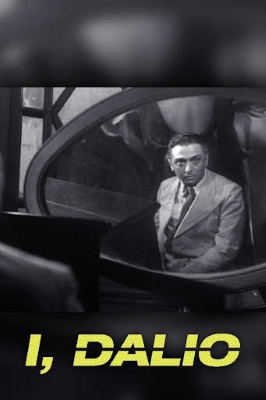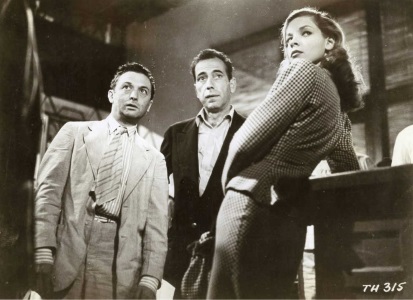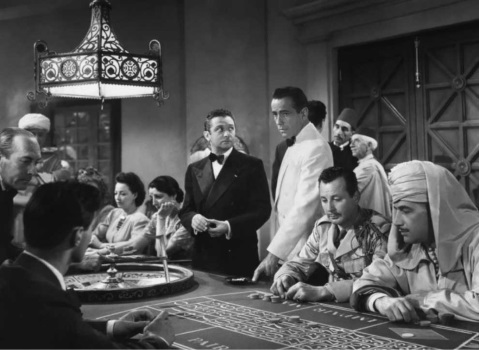I, Dalio

Director: Mark
Rappaport
Year: 2015
Rating: 7.0
I think most of us know Marcel Dalio from both
Casablanca where he is the Croupier and To Have and Have Not where he plays
Frenchie. But we have all come across him so many more times and likely didn't
recognize him or took no notice. He was one of the great character actors
of the 1930s and 40s - both in Hollywood and in his country of France. This
is a 30-minute essay and tribute to him from Mark Rappaport who has cobbled
together a great collection of clips of him from many films. Rappaport is
a film essayist and I always love coming across another one from him. They
dig past the veneer of Hollywood and the subject to something darker. In
The Silver Screen: Color Me Lavender, he discusses homosexual imagery in
film; in John Garfield how his leftist politics was used to destroy him;
in Sergei he delves into the secret sexuality of Eisenstein; in Anna/Nana/Nana/Anna
he explores why Anna Sten who was brought over to be the next Garbo disappeared
off the screen; in My Dinner with Turhan Bey he admires the beauty of the
man.

This 30-minute essay is narrated as if from
Dalio talking about his career. In France he was often the Jew - he was Jewish
in real life - and in many of his roles his Jewishness put him in negative
roles - the blackmailer, the informer, the swindler, the money lender - and
the film posits that though he might not have been identified as Jewish,
everyone knew his character was. This was pre-the German invasion of France.
Before that he was in two films that have become classics - Rules of the
Game and The Grand Illusion. Barely ahead of the Nazis, he along with his
wife (in the Marseille scene in Casablanca) escaped from France and made
it to America. Not mentioned in this film, but the Germans put up his poster
in France that was labeled "Typical Jew" so that people could report them.
The rest of his family did not leave and they all died in the camps. In America,
he was no longer The Jew - but now the Frenchman which during WW2 was in
demand for many films. Back to France after the war where again he got the
same sort of roles - except in the many American films shot in Paris. But
the difference was that in most American films he barely made a dent - far
down on the list of credits while he was very famous in France and his appearance
in a film was a big deal. I wish I could get Rappaport's film
essay on Debra Paget and Anita Ekberg.




